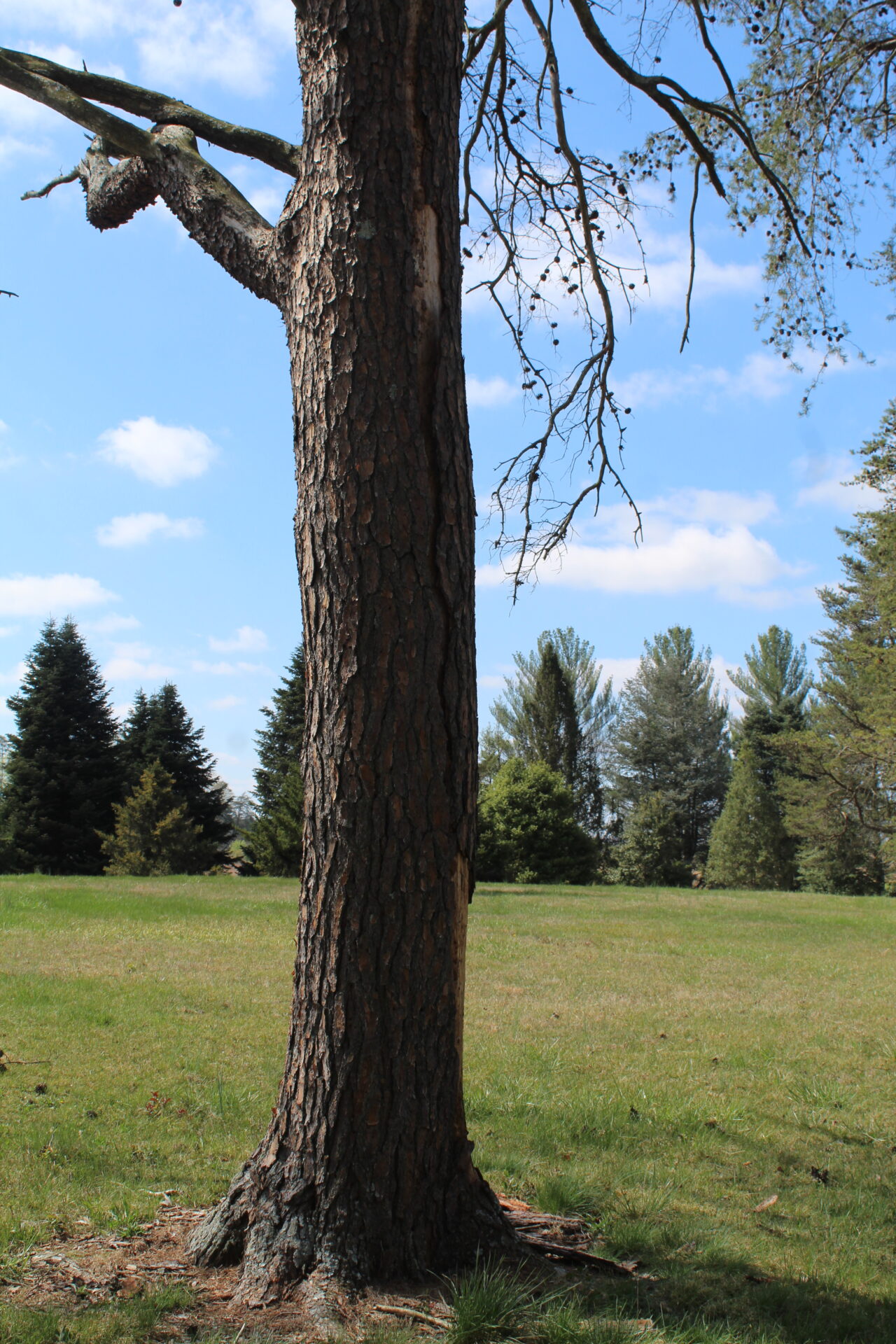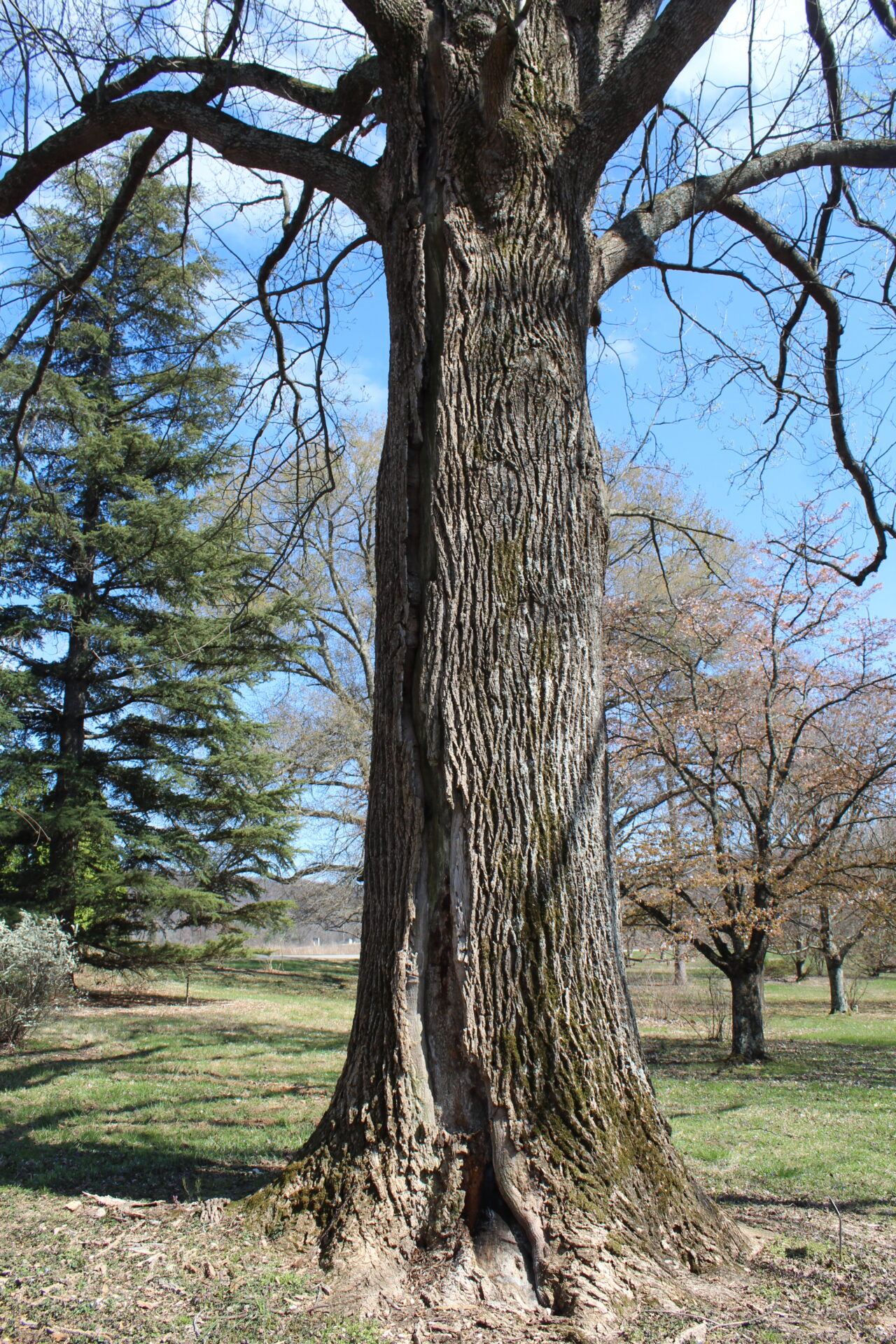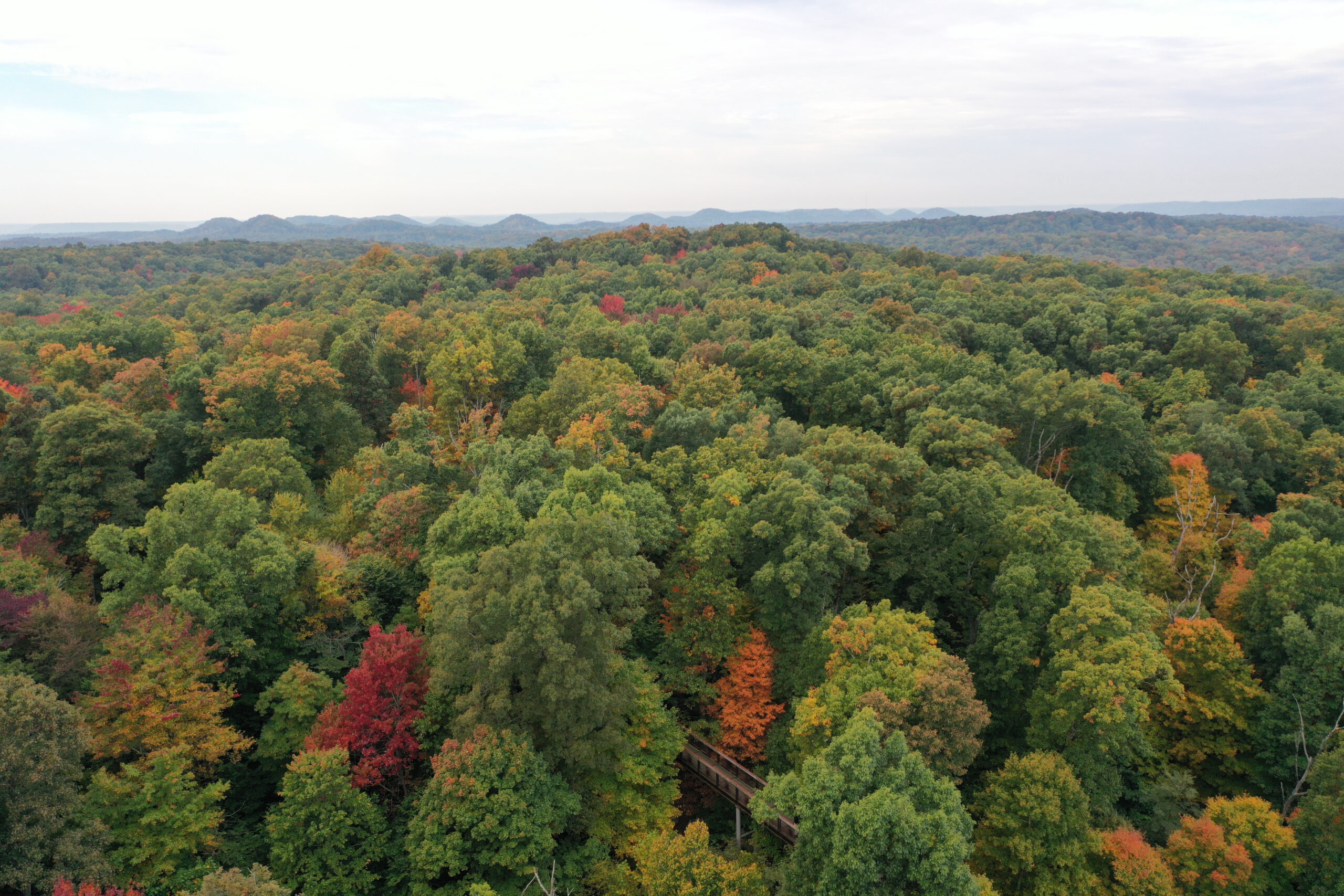By Kelly Vowels
Now that we have entered spring, thunderstorms become more frequent, and it gets me thinking about lightning, even though summer typically witnesses more lightning strikes than spring. Reflecting back on elementary science class we all know that lighting is an electrical discharge caused by an imbalance between clouds and the ground, as well as between clouds. It’s common knowledge that lightning tends to strike the tallest object, hence the childhood warning against seeking shelter under trees during thunderstorms. However, it may come as a surprise that certain tree species are more frequently struck by lightning than others.

Trees exhibit conductivity levels over 10,000 times greater than that of air, rendering them both targets and attractors of lightning strikes. Nonetheless, not all trees are the same. Varied tree species possess unique cellular structures and physiological characteristics, influencing their susceptibility to lightning strikes. Research indicates that oaks, in particular, experience lightning strikes more frequently than other tree species. This is usually because they are the highest object on the landscape, and are found high on ridgetops. Other trees that are commonly struck by lightning are elms, ash, spruce, tulip poplar, and pine.
Beech, birch, maple, and holly are hit less often. One possible reason for this is during storms trees get drenched in water, and the wetter a tree is the less susceptible it is to lightning due to increased conductivity. Smooth bark trees become thoroughly wet while rough-barked trees do not. Also, it is possible that species with deep tap-rooted trees versus shallow-rooted trees are struck more often. Research has found that tree species have varying electrical resistivity, but why they differ is harder to understand.

Conifers have a higher resistivity than hardwood species, which means they strongly oppose the flow of electric current. Therefore, conifers would be less likely to be hit by lightning than hardwoods, but research shows that when Conifers are hit by lightning they sustain more damage than hardwoods species. Resistivity also increases with diameter and water content. Larger, thicker trees are less susceptible to lightning strikes than small thin trees.
When trees are hit by lightning the current will usually travel just below the bark where there is a layer of sap and water. This area is quickly heated causing the bark to explode off the tree and sometimes causing the wood to split. Some trees can survive a lightning strike, but many do not. If lightning passes completely through a tree it will kill the tree. Sometimes lightning leaves a scar and the tree will survive, while some trees show no signs of being struck by lightning. Contrary to popular belief, lightning can and will strike the same place more than once. Some trees can be hit several times by lightning. There are signs of trees struck by lightning throughout the Arboretum and natural areas here at Bernheim Forest. So during a nice sunny day take a walk around Bernheim and watch for lightning damage on trees, but when a thunderstorm comes in, make sure to get inside where you are safe.

